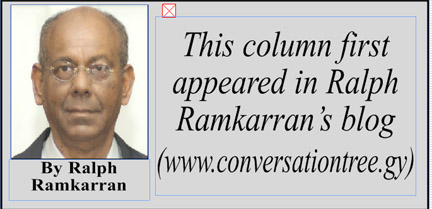
Jeremy Corbyn’s transformation in three weeks among his own colleagues and many supporters of Labour, from a liability, and among the Conservatives and his own right wing parliamentary colleagues, from the disorganized, incompetent, dishevelled bumbler that they painted him as, to the charismatic leader that he is, has been as equally dramatic as the election results.
His closest colleagues’ belief in Corbyn never faltered. They knew his potential and chose to project the 68 year-old man, his character and his qualities, before the British people, with confidence that he would effectively market Labour’s manifesto and attract support. But the projection of his character was not done through advertisements, such as for Prime Minister Theresa May, hailing her as ‘strong and stable’ but who turned out to be ‘weak and wobbly,’ stiff and uncomfortable in interviews, afraid to face her opponents in debate, hidden from the public, and forced to withdraw the ‘dementia tax’ against the sick.
Jeremy Corbyn was simply allowed to be himself so that his qualities would emerge naturally. A vegetarian since the age of 20, he came over as a soft-spoken, charming man, modest and unassuming in his habits, with simple tastes who lived an equally simple life, who loved people and delighted in their company, who loved poetry, who was passionate about injustices and the need to protect the disadvantaged and who offered to halt the disastrous policies of austerity and tax breaks for the rich.
He adamantly refused to engage in personal attacks on his opponents and declined to respond to the monstrous denunciations of him by the right-wing media and the Conservative Party.
His campaign has transformed the fortunes of the Labour Party, whose parliamentary leadership, less than a year ago, voted against him in a no confidence motion after the Brexit vote, 170 to 40 or thereabouts. He defied the odds by winning the leadership elections for the second time in a year with an even larger majority, this time 60 per cent.
The knives were out once again. The polls at the beginning of the campaign suggested the virtual annihilation of the Labour Party. Instead its vote increased from 30 per cent in 2015 to 40 per cent, just 1 per cent less than former Labour Prime Minister Blair’s landslide victory in 2001.
But as recent performances by Syriza in Greece, Podemas in Spain, Jean-Luc Melenchon in France and Bernie Sanders in the US have shown, the left is on the rise in Britain, around Europe and North America. Driven by the failure of right wing social democrats such as Clinton and Obama, Blair and Brown, Hollande of France, to arrest the widening gap between the top ten per cent and the bottom eighty per cent, and halt declining real wages and rapidly disappearing industries, the working and middle classes are rejecting the lightly modified neoliberal policies advocated by flashy technocrats.
The more vicious forms of austerity and tax breaks for the rich have failed.
The Labour Manifesto, entitled ‘For the Many Not the Few,’ promised increased spending for health and social welfare, better pay and a minimum wage, nationalization of the rail and energy services, free university education, an infrastructure programme to create employment and more. To pay for these, taxes on the upper five per cent would be increased. The manifesto was a monumental success.
It mobilized the British people behind Corbyn and the Labour Party. More significantly, for the second time within one year, the world has witnessed the mass mobilization of youth around two ‘old’ men, Sanders and Corbyn.
The Labour left has historically struggled for the opportunity to present a left programme to the electorate, more in line with those of Labour Prime Minister Clement Atlee, Prime Minister between 1945-1951, rather than Karl Marx, confident that it would receive support. This is the first time since then that the opportunity presented itself. It was explosively successful.
Labour policies are now clearly on the national agenda and cannot be ignored by a government with diminished credentials and support. The Brexit negotiations will no longer be characterized by the hard, negotiating posture of Theresa May, which angered EU leaders even before the negotiations have begun. The Conservative Party policies of austerity and tax breaks for the rich will have to be modified. Labour will now need to further refine its policies and keep its electoral machinery humming for the inevitable time soon when new elections are called. The speculation is that Theresa May will succumb to the demands for new leadership of the Conservative Party, hers having so ignominiously failed.
(Ed note: Ralph Ramkarran’s column will not be appearing for the next few weeks; it will resume on August 6.)






